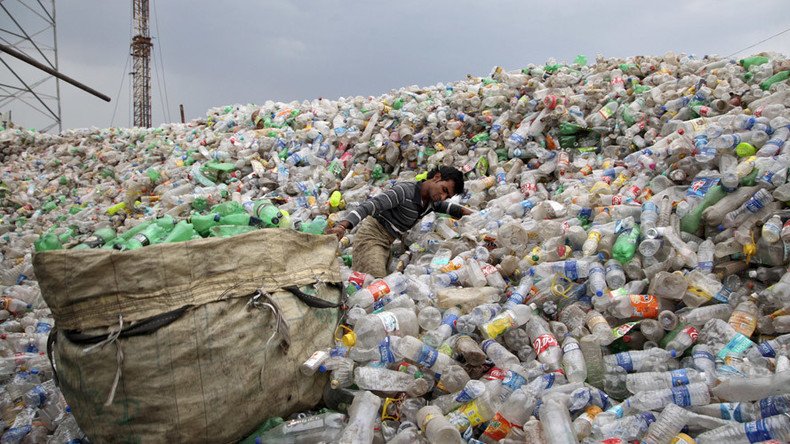Scientists reveal efficient way to degrade a plastic bag into liquid fuel

Global plastic production now stands at more than 299 million metric tons per year, most of which is destined for the world’s landfills and waterways. However, scientists are working on a method to convert all of that polyethylene waste into liquid fuel.
Scientists from the US and China appear to have found the best way to do that, describing how they carried out “efficient and selective degradation of polyethylenes into liquid fuels” in a recent study published in the Science Advances journal.
To put the massive growth in synthetic plastics production into perspective, in 1950, 17 years after the accidental discovery of polyethylene, just under 2 million metric tons were produced worldwide, according to Earth Policy. Today that number has jumped by 150 times.
The popular polymer now makes up much of today’s packaging, and more than 100 million metric tons of polyethylene plastic is estimated to be produced annually.
The researchers behind the new study, who are based at the Shanghai Institute of Organic Chemistry and the University of California, sought more efficient means to regenerate plastic. Current methods of converting plastic into liquid fuel involve subjecting the material to great heat or ultraviolet radiation – a method the researchers say suffers from “low energy efficiency and lack of product control.”
The process they developed, known as cross alkane metathesis (CAM), appears to be “highly efficient” in breaking down the plastic “without any pretreatment,” according to the researchers.
This process involves using two catalysts to create chemical reactions that basically split and separate the substances used to make plastic items such as carrier bags or bottles.
“After multiple cycles of CAM with light alkanes, PE [polyethylene] will be eventually converted to short hydrocarbons suitable for transportation oils,” the study reads.
The research also showed that the catalysts are “compatible with various polyolefin additives,” meaning a number common plastic objects, perhaps otherwise likely to remain under the soil for thousands of years, could be converted into energy or chemical feedstocks.
The full study is available at Science Advances.













